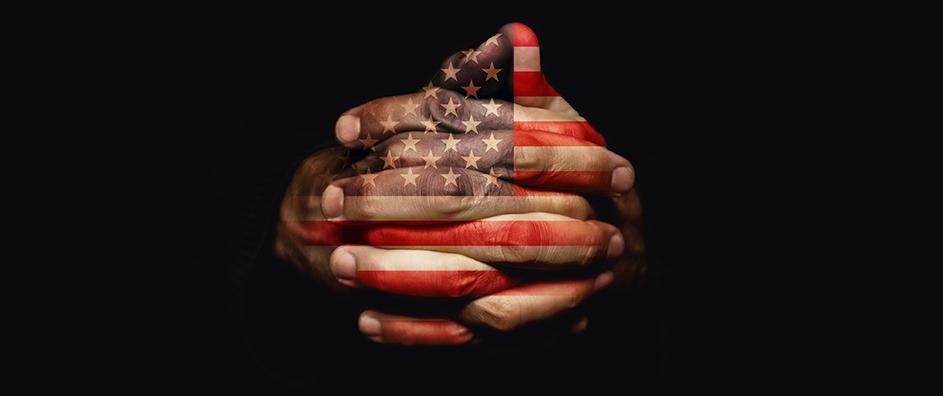The Bahá’í Faith, an emergent world religion founded in the mid-19th century, underscores a profound commitment to the principles of unity, justice, and the betterment of society. One particularly poignant aspect of this faith is the reverence accorded to prayer, notably the “Bahá’í Prayer for the United States Government.” This prayer encapsulates the philosophy of the Bahá’í teachings while addressing the intersection of spirituality and governance in the contemporary world. A closer examination reveals the deeper motivations and implications that underpin this prayer, reflecting both a spiritual aspiration and a societal mandate.
At its core, the Bahá’í Prayer for the United States Government is a supplication that seeks divine guidance for the leaders of the nation. The prayer articulates the hope that these leaders may be endowed with qualities such as wisdom, discernment, and an unwavering commitment to justice. This aspiration resonates deeply within the framework of Bahá’í teachings, which prioritize moral leadership and the pursuit of the common good. Within the tumultuous landscape of political discourse, the prayer serves as a reminder that governance is not merely an exercise of power but fundamentally a responsibility to the population.
The call for principled leadership in this prayer reflects a desire for a governance model that transcends partisanship. The Bahá’í concept of unity emphasizes the importance of concord and collaboration among diverse groups. Historically, political divisions have often led to societal strife, undermining civic harmony and ethical governance. By invoking the ideal of unity, the prayer challenges leaders to rise above factional interests and to embrace a more holistic vision that encompasses the well-being of all citizens.
This prayer also highlights the role of spirituality in informing societal structures. The Bahá’í Faith teaches that religion and science must coexist harmoniously, promoting an integrative approach to governance that acknowledges empirical realities while maintaining moral imperatives. The request for divine assistance is not merely an act of humility; it signals an understanding that effective governance necessitates more than human ingenuity. It mandates a moral compass guided by spiritual principles, which can provide solace and direction in moments of uncertainty.
Furthermore, the prayer alludes to the necessity of accountability and ethical stewardship in governance. In a world replete with corruption and inefficiency, the Bahá’í Faith posits the idea that leaders are accountable not only to their constituencies but also to a higher moral standard. This dual accountability suggests that governance must be scrutinized through the lens of ethical responsibility. The solemn plea for wisdom in the prayer invites reflection on the ethical ramifications of political decisions and promotes an ethos where leaders recognize their actions’ impact on current and future generations.
The invocation of justice in the prayer is particularly significant. Justice is a cornerstone of the Bahá’í teachings and is regarded as a fundamental principle in constructing a society where equality and equity prevail. This emphasis on justice connotes an active, dynamic process rather than a static condition. It compels leaders to engage in fair governance practices that consider the most marginalized populations. In doing so, the prayer advocates for systemic changes that dismantle barriers and create equitable opportunities for all citizens, thereby fostering a just and inclusive society.
Moreover, the prayer’s focus on the United States specifically underscores the country’s unique role as a global leader. Bahá’ís hold that with great power comes a corresponding great responsibility. The prayer thus invokes the need for clear moral vision in a nation that is often viewed as a beacon of democracy and liberty. It serves as an appeal for the United States to live up to its ideals and to model ethical governance for the wider world. Here lies a subtle yet profound critique of the status quo: it implores leaders not just to uphold democratic ideals of freedom and justice, but to actively embody them in practice.
In enhancing the fidelity to these values, the prayer implicitly posits that the vibrancy of democracy is contingent upon the spiritual vitality of its leaders. As Bahá’í teachings emphasize, the spiritual development of individuals is intricately linked to the progression of society. To enact change, leaders must not only be skilled policymakers but also individuals endowed with integrity, compassion, and foresight. Consequently, the prayer acts as a catalyst for introspection among leaders, challenging them to cultivate these virtues within their own lives.
In summation, the Bahá’í Prayer for the United States Government serves as a resonant articulation of the interplay between spirituality and governance. It embodies the ideals of unity, justice, and moral accountability, while urging leaders to seek divine guidance in their stewardship. Ultimately, the prayer invites a broader discourse regarding the ethics of governance and posits that the stewardship of society requires a sophisticated blend of spiritual and practical wisdom. As the citizens of a diverse and multifaceted nation, the response to this prayer presents an opportunity to engage in a collective exploration of what it means to govern justly and with purpose, paving the way for a future characterized by collaboration and ethical leadership.
